Search Results
Showing results 221 to 240 of 1476

Toilet Paper Solar System
Source Institutions
In this activity, learners build a scale model of the solar system using a roll of toilet paper.
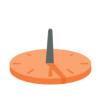
Make Your Own Sundial
Source Institutions
In this activity, learners investigate the Earth's rotation and how to tell the time of day without a clock. Thsi simple activity only requires a paper plate, a pencil, and sunshine.
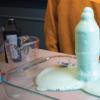
Fizzy Foam Fun
Source Institutions
In this activity, learners create a colorful foam fountain by adding yeast to a chemical reaction. This activity introduces chemical reactions to young learners and teaches the concept of catalysts.
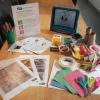
Watch and Create! Creativity For Sustainability
Source Institutions
In this activity, children and adults work together to explore their relationship with technology and examine ways to make sustainable media consumption choices.

Plenty on the Plains
Source Institutions
In this activity, learners compare the ways of life of Plains Native Americans who hunted and moved frequently to follow the buffalo herds, and Native Americans who farmed and lived in more permanent
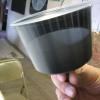
Mini Zoetrope
Source Institutions
In this activity (posted on March 27, 2011), learners follow the steps to construct a mini zoetrope, a device that produces an illusion of action from a rapid succession of static pictures.
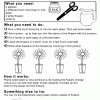
Find Out How Plants Use Water
Source Institutions
In this activity, learners investigate how plants use water. By making the flowers change color, learners see how water moves up the stem to the leaves and the flowers.
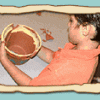
Piecing It All Together
Source Institutions
Learners create their own piece of history by decorating, shattering, and piecing together a flowerpot "artifact".
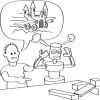
Programming Languages: Harold the Robot
Source Institutions
In this activity related to computer programming, learners give directions to a "robot" (either an adult or another learner) and find out which instructions the robot is able to follow, and how their
Yeast Balloons
Source Institutions
Visitors observe a bottle with a balloon attached around the mouth. The bottle contains a solution of yeast, sugar, and water.
What Causes Rainbows?
Source Institutions
In this activity, learners explore how and why rainbows form by creating rainbows in a variety of ways using simple materials. Learners create rainbows indoors and outdoors.
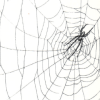
Web It!
Source Institutions
In this outdoor activity, learners investigate spider webs and feeding behavior, particularly how spiders trap food in their sticky silk webs while not getting stuck themselves.

Vortex
Source Institutions
In this activity, learners create a tornado in a bottle to observe a spiraling, funnel-shaped vortex. A simple connector device allows water to drain from a 2-liter bottle into a second bottle.
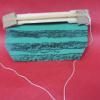
Buzzing Bee
Source Institutions
In this activity, learners explore sound by constructing an instrument toy that buzzes when you swing it.
Special Snack: Budgeting for Health
Source Institutions
In this activity, learners will plan a snack within a budget. With a $20 limit (theoretical) to spend on snack for everyone, learners look over grocery store circulars and make their shopping lists.

Neutralizing Acids and Bases
Source Institutions
Learners use their knowledge of color changes with red cabbage indicator to neutralize an acidic solution with a base and then neutralize a basic solution with an acid.
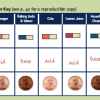
Copper Cleanup
Source Institutions
In this hands-on experiment, kids use chemistry to explore whether acids or bases are better at restoring a penny’s shine.
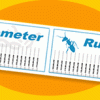
Measure Yourself in Nanometers
Source Institutions
In this activity, learners will be able to measure themselves in nanometers. A nanometer is a billionth of a meter, a unit of measurement used in nanotechnology.
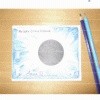
Eclipse Flipbook
Source Institutions
In this activity, learners make flipbooks of drawings showing the progression of a Total Solar Eclipse.
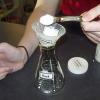
Hot and Cold
Source Institutions
In this activity, learners explore temperature changes from chemical reactions by mixing urea with water in one flask and mixing calcium chloride with water in another flask.
